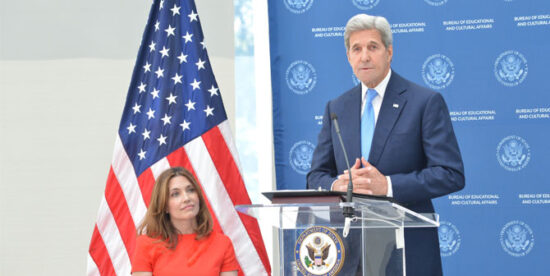
In honor of the United Nations International Day of Peace, launched by the General Assembly in 1981, we accept the UN’s invitation to commemorate the day through education and “public awareness on issues related to peace”. The theme for this year is “The Sustainable Development Goals: Building Blocks for Peace”, referring to those unanimously adopted by the 193 Member States of the United Nations at an historic summit of the world’s leaders in New York in September 2015. It can certainly be said that the recent partnership between Airbnb and the Department of State fits within Goal 8, Decent Work and Economic Growth as well as Goal 9, Industry, Innovation, and Infrastructure.
Reasons for collaboration between a hospitality company and the federal government might not be obvious at first glance, but it actually makes perfect sense that the two would join together to increase opportunities and connections between citizens and countries. As an outcome of the Seventh Annual U.S.-China Consultation on People-to-People Exchange, Airbnb officially signed on to support the 15-year-old Benjamin A. Gilman Scholarship program, which has offered international exchange opportunities to 22,000 American students who might not have otherwise had the opportunity to study abroad. Gilman Scholars study in 144 countries around world, and China is the top destination.
Online marketplace Airbnb is no stranger to economic growth and industry innovation. In the nine years since two San Francisco roommates hosted their first guests on air mattresses as a way to cover their rent, the network has grown to more than 2 million hospitality listings in over 34,000 cities in 191 countries around the world. More than 60 million people have chosen Airbnb to find a “home away from home” and the company is seeing its largest growth in Asia: outbound travel from China has grown 500 percent in the last year alone.
This cooperation between the United States and China demonstrates that cross-cultural understanding is based on a great deal more than government-to-government interaction: it requires a whole society approach. Under the People-to-People Exchange, NGOs, academic institutions, and private companies will all play a role in programs ranging from culture, sports, education, science, and technology to women’s issues and health.
Secretary of State John Kerry underscored the importance of this partnership in expanding the perspectives and opportunities American students have, noting a significant gap between the roughly 300,000 Americans studying overseas each year and at least one million international students who come to study at U.S. colleges and universities. Kerry highlighted studying abroad as part of a larger worldview: “I’ve always said that in global diplomacy it is critical not just to see the world through American lens, but to see through the lens of people we’re trying to make friends with or deal with or contemplating even the potential of conflict with.” This new partnership is the latest example of how the private and public sectors can work together to bolster relationships between people and nations, as well as the crucial role international exchange plays in closing the distance between cultures on opposite sides of the world.
by Jeanne Briganti and Sarah Wood, Global Ties U.S. Photo Courtesy of U.S. Department of State.
